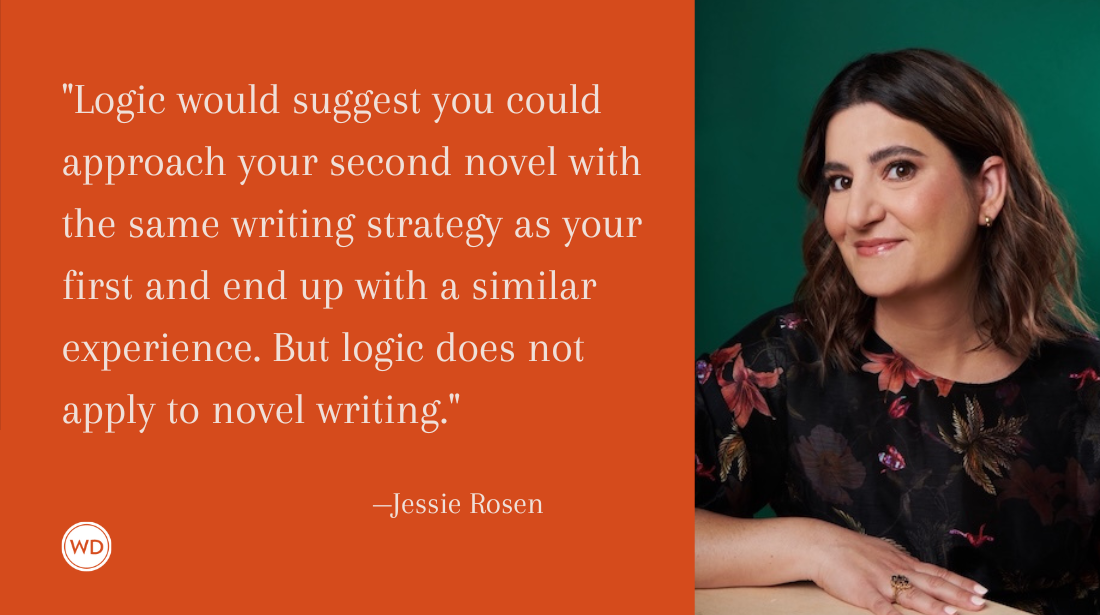The Intersection of Inspiration and Research for My Novel
Award-winning writer Karen F. Uhlmann shares the inspiration for her novel as well as the research required to pull it off.
Nearly 20 years ago, a small girl was struck and killed while crossing the street with her family. The driver ran a stop sign and sped away, dragging the girl under the car. My Chicago neighborhood mourned. Her school, which my children had also attended, mourned. Walks calling for more to be done to protect pedestrians were organized. A new law was created mandating that drivers stop for pedestrians. I found it unbelievable that there was not already a law in place.
The tragedy was all over the news and the newspapers. Her family, of course, was traumatized, but I discovered that there was another person who was heartbroken. A policeman, who had been on the scene, began parking his squad car at the crosswalk most weekdays. Here, he used a small video camera to film and ticket stop sign runners. I learned from an article that he pressed stickers with the child’s face onto these tickets. It seemed that he did not want drivers to forget how easily a life can be taken. How quickly one could lose a loved one.
I often walked past him. He was intent, and I wondered what he was thinking, what drove him to show up and film even on the coldest days. Did he deter stop sign runners? Did he educate drivers? Was he married? Did he have someone to talk to about what was clearly a devastating experience for him?
The image of this man standing on a corner day after day stayed with me for years. I wrote stories, got an MFA, and he lingered. Eventually, he became the seed for my novel, Intersections. As I had never known a police officer or written from a male point of view, some research was needed.
I first talked with a male officer who told me that out of all the things he faced, the death of a child was something he could not get over. Most officers, he’d said, find them unbearable. They carry these deaths with them. I spent time with a female officer who echoed his sentiments. Both officers were parents and gave me a window into the sorrows officers face all too often.
The female officer was invaluable in helping me with the facts. I learned that in Chicago, police precincts were called districts. She described her days, what the inside of a squad car looked like, and how close police partners grow. I could not have been accurate without her. Both officers were kind as well as patient with my rookie questions.
The life and feelings of the officer I observed would remain a mystery to me. I never spoke to him and have sometimes wondered if it would have been better if I had. But then he would have been too real. I would have been writing about a person’s life, and I might have been bound to facts. So, in the end, it was better that we were strangers. It gave me the freedom to imagine.
In Intersections, Ed became obsessed with finding the driver. In reality, the driver was quickly identified and imprisoned, but that truth would not have worked for my story. Another character, Charlotte, also witnessed the accident. She thought she saw her own car fleeing the scene. The only person who could have been driving was her daughter who struggled with OCD and addiction. Although Ed and Charlotte become unlikely friends and confidantes, she kept this a secret. Later, an emotionally wounded Ed would view this as a betrayal.
Slowly, Ed revealed himself to me, and I built his life while asking myself a lot of questions about how he felt and what was important to him. Because I began to write the novel 15 years after the incident, I also had the space and time to create Ed in ways I might not have if I’d written the novel right away. It allowed me to not consider or be bound by the truth of what actually happened.
Ed was facing challenges and losses. He was lonely, mourning the death of his best friend and partner who was killed in a drug bust in which Ed was also injured. Forensics found that the bullet came from his gun, and he was placed on paid leave pending an investigation. He was scared. Against Ed’s wishes, his wife became a surrogate for their daughter who has infertility issues and desperately wanted a baby. Ed worried endlessly about losing his wife to an age-related pregnancy stroke.
Prior to Intersections, I had written quite a few short stories but never had to sustain a deep dive into characters. I discovered that I loved thinking about Ed and Charlotte and what they wanted. Or what they didn’t know they wanted but needed. Despite their flaws and their stumbles, they became important and real to me, and I hold them close.
Check out Karen F. Uhlmann's Intersections here:
(WD uses affiliate links)








